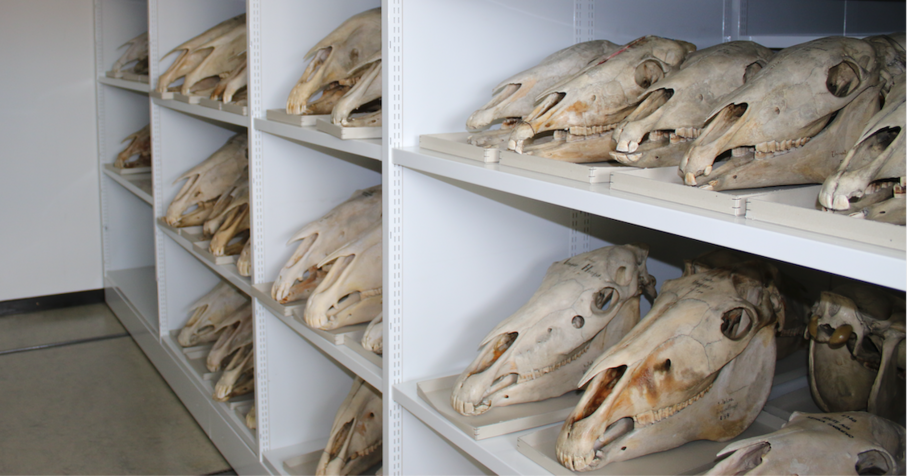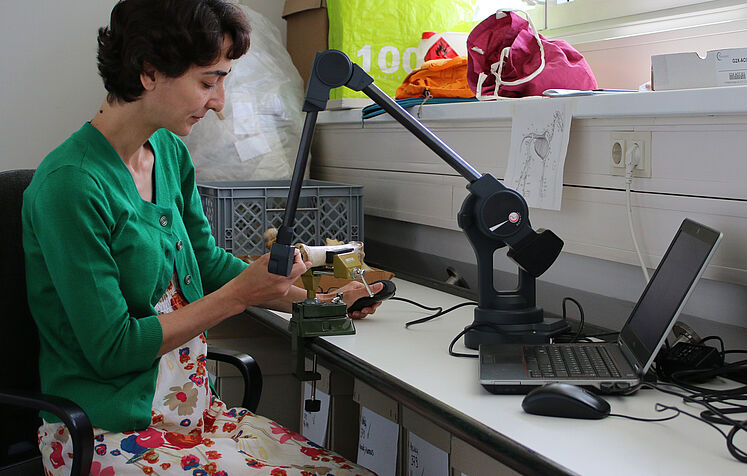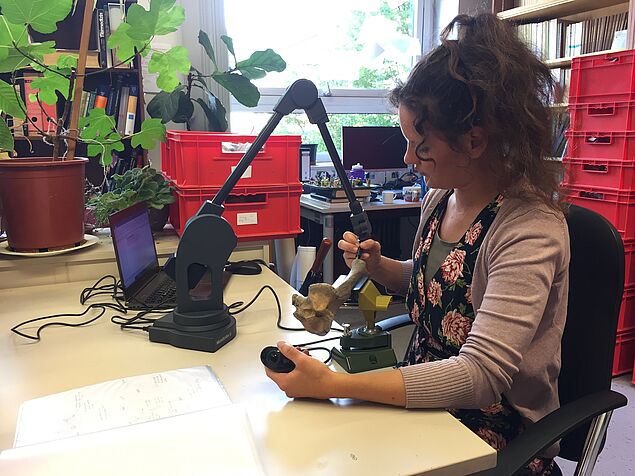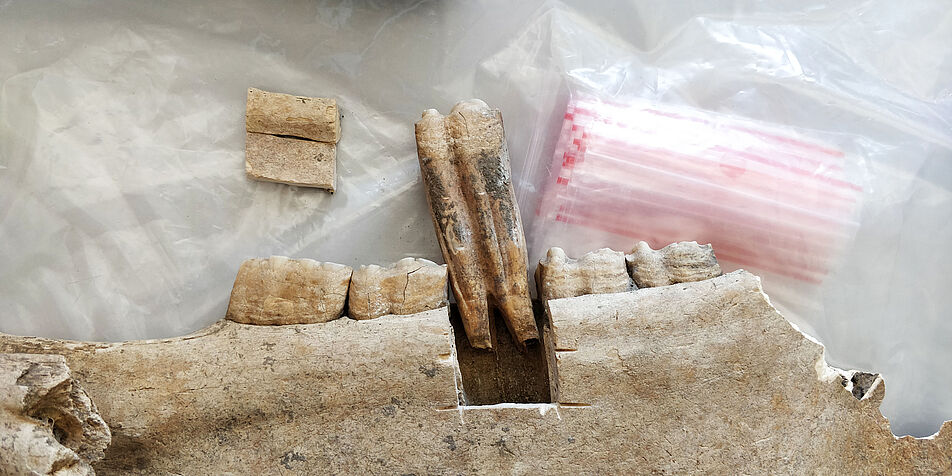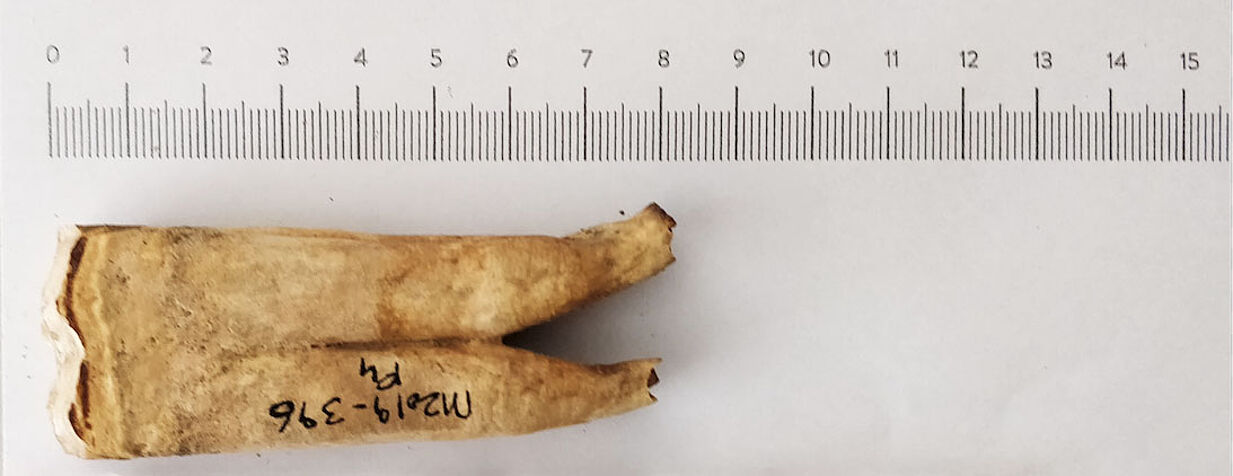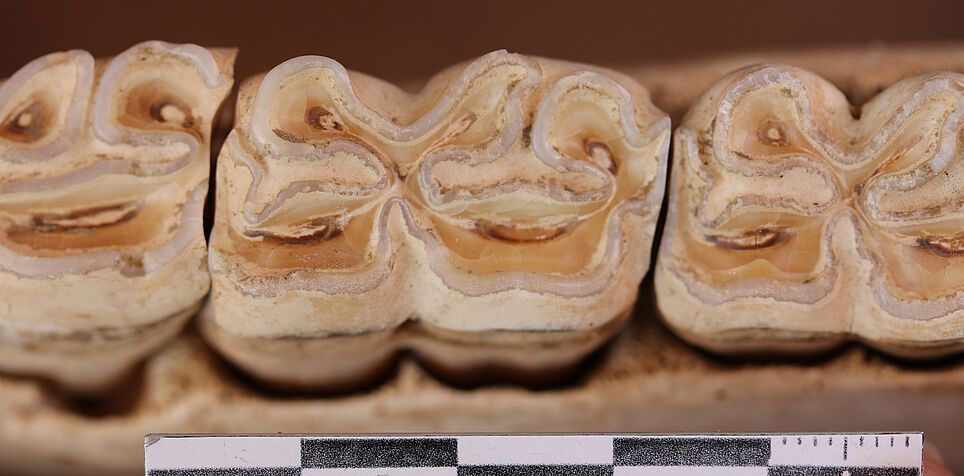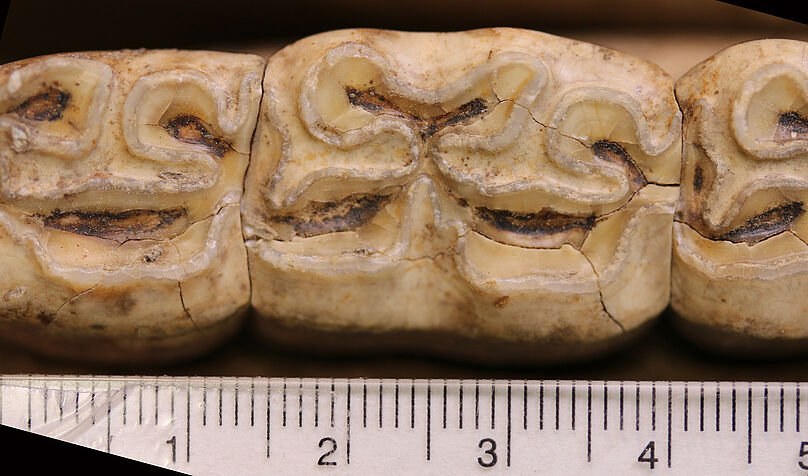Paleogenomics of Roman Equids
In ancient cultures humans and animals interacted in multiple ways, but tangible evidence illustrating this relationship is limited due to the nature of the archaeological record. Humans have been crossbreeding wild and domestic members of the horse family (Equidae) since millennia. Such hybrids were greatly valued for their physical strength, endurance and other physiological and behavioural properties, the so-called heterosis effect.
In our research project we are interested in ‘mule’ - the cross between the male domestic donkey and the mare. Valued since Antiquity in military and civil life, their importance is in contrast with their relatively limited appearance in archaeological assemblages. This disparity mainly lies in difficulties in species identification from fragmentary records using only morphological criteria.
Our international team focuses on establishing a pipeline by combining standard morphology with Geometric Morphometrics (GMM) and ancient DNA (aDNA) analysis to trace the F1-hybrids in equine archaeological assemblages from a multi-disciplinary angle, and address a long-standing issue in bio-archaeological research of equids in Roman times.
This multidisciplinary joint project is funded by Austrian Science Fund (FWF), and German Research Foundation (DFG) for the duration of three years.
Austrian project leader: Dr. Elmira Mohandesan
German project leader: Prof. med.vet. habil. Joris Peters



